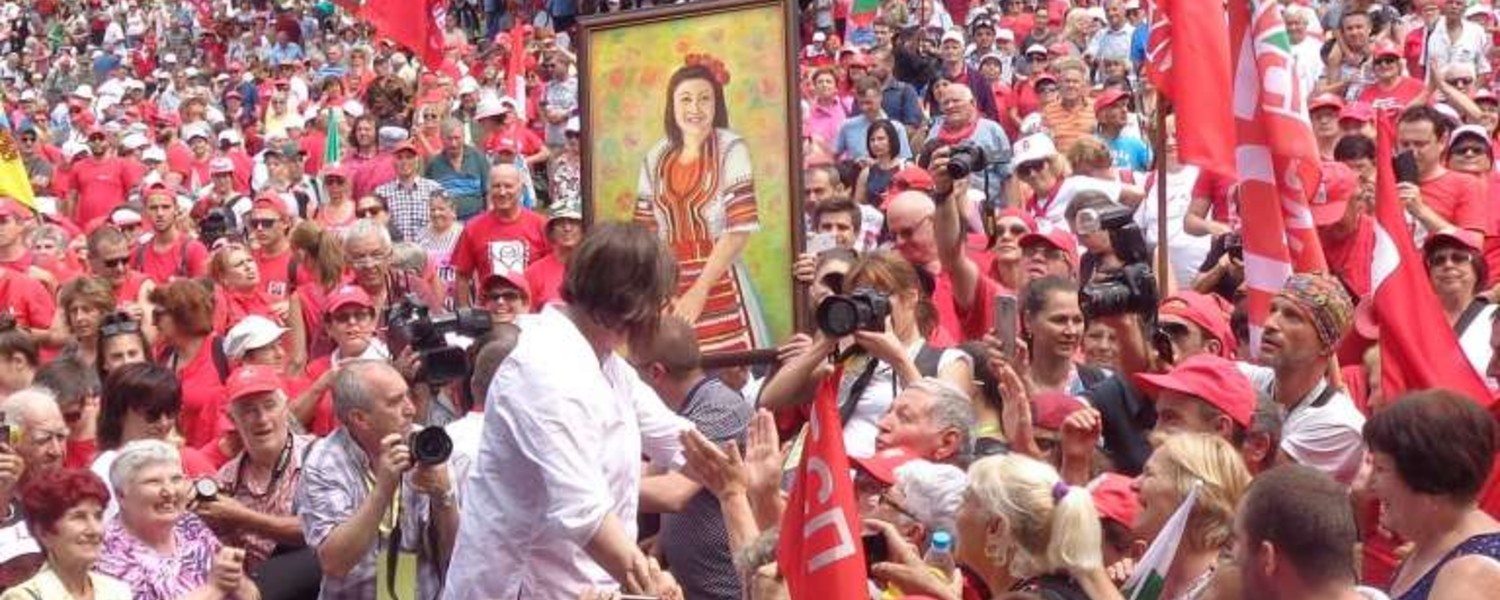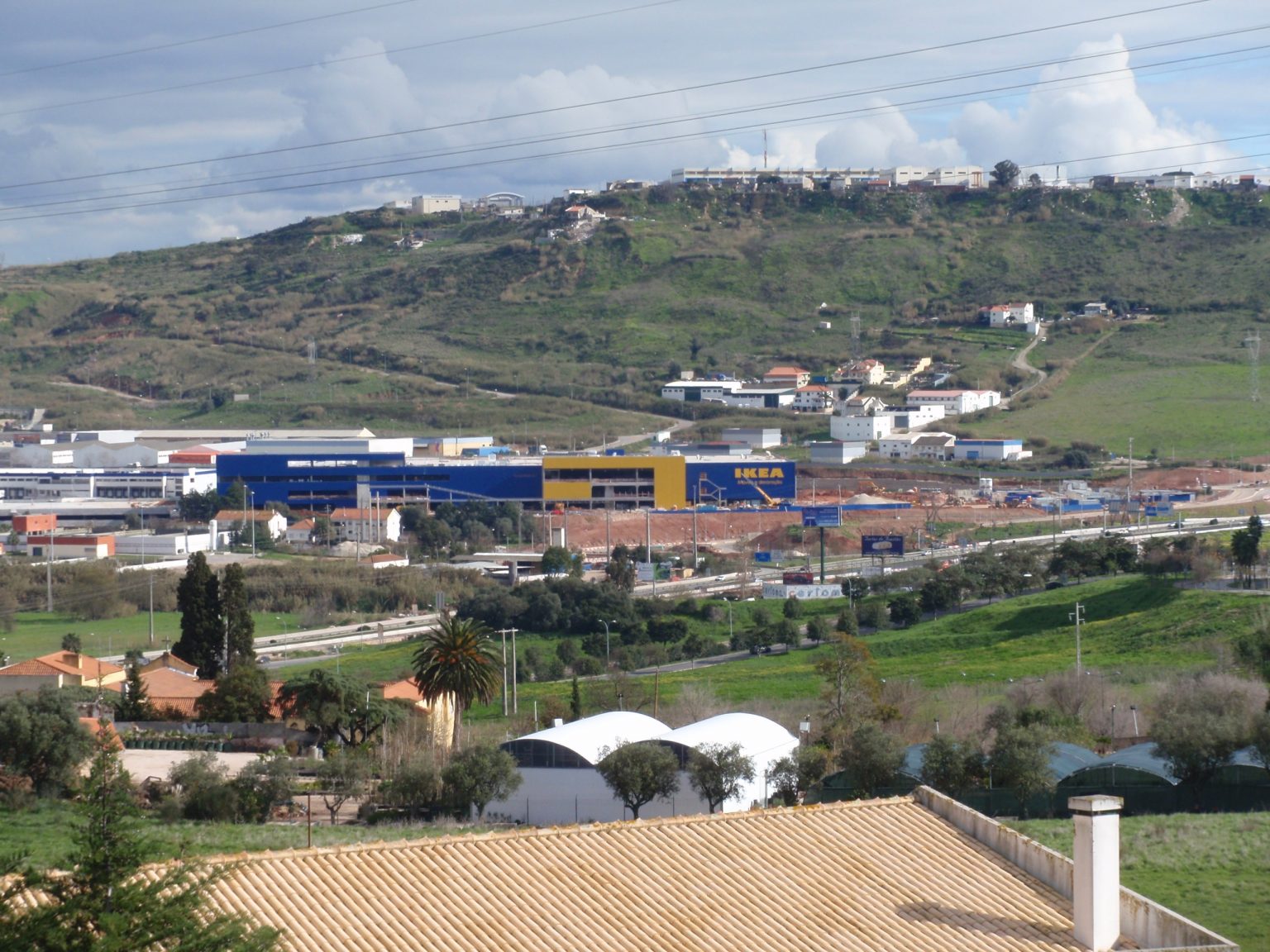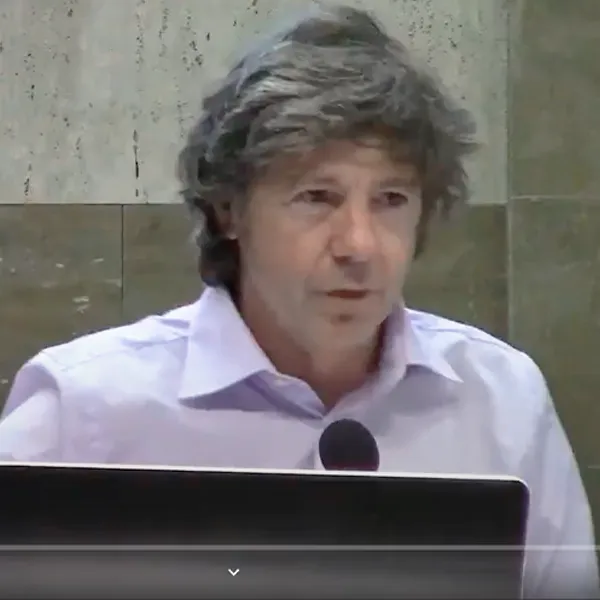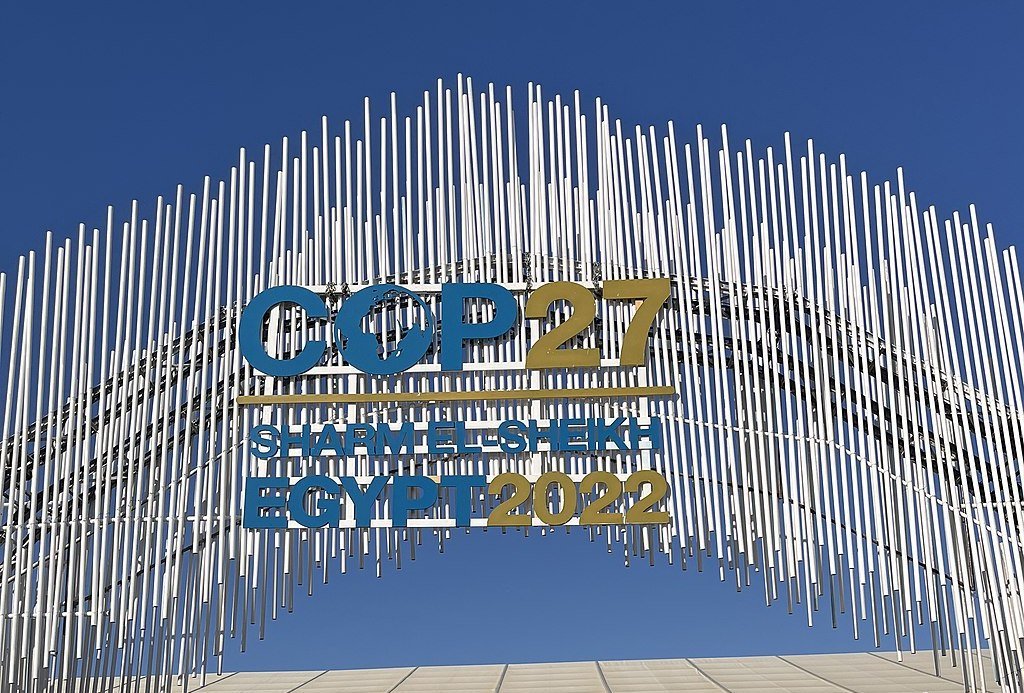”To cure the British disease with socialism was like trying to cure leukemia with leeches.”
Margaret Thatcher
This article was published on 23 September 2020 at the Bulgarian section of the Barricade. Three days later — 26-27 September 2020, the Bulgarian Socialist Party (BSP) had a plenum, which saw previous leaders and party functionaries, associated with the liberal and the left wing of the party, being replaced in the National Council of BSP — the collective body, that represents the current balance of forces inside the party. The plenum evidently strengthened the positions of the current party leader — Kornelia Ninova, who won the elections for party leader with more than 81% of the votes in a members’ election, held in the first half of September 2020. Ninova got famous with making the BSP take a turn to a “conservative left” ideology after she became the party leader in May 2016.
When Baroness Margaret Thatcher, the British Conservative Party politician and the first female prime minister of Great Britain, said those words in 1993 she could hardly have imagined that almost three decades later there would be a Bulgarian politician, a leading member of a socialist party, who would announce on TV that Thatcher and another leader of the British Conservatives — Theresa May — are her favourite politicians.
When Kornelia Ninova declared her admiration for Margaret Thatcher, she must have been aware of the beliefs of her idol: “I never had any doubt that socialism was a harmful doctrine” (Margaret Thatcher speaking to the Bulgarian conservative magazine, Reason, in 2002).
What were the reasons why a 130-year-old party, a member of the political family of left parties in Europe, would take this sharp right turn and enter the waters of right-wing populism?
In order to answer this question, we need to trace the history of the appearance of right-wing populism and to explain the reasons for the rise of populism all over the world as well as in Bulgaria. This cannot be done in a single article. I will only focus on the most important points.
Thatcherism and the heritage of Margaret Thatcher
The determined fight for the reduction of trade union influence and of workers’ rights in Great Britain, and the fight to eliminate state control were the main elements of Thatcher’s policies. The privatisation of some of the greatest nationalised industries in the country is what Baroness Thatcher would go down in history for. British Airways, British Telecom, British Steel and British Gas — these enormous companies were privatised in her time. Encouraged by her success, governments in Europe and Latin American followed suit. Nigel Lawson, the finance minister in her cabinet between 1983 and 1989, described Thatcher’s ideology as a “political platform emphasising free markets with restrained government spending and tax cuts, coupled with British nationalism both at home and abroad”.
Thatcher’s battles with the left, especially with the miners, brought her the image of a hardcore politician. Her fight against her colleagues in the Conservative Party is also legendary. She wanted to tighten the ranks of the right by replacing the old-fashioned “moderates” and imposing her vision of conservatism. A lot of her hardest criticisms were against her own camp. “You turn if you want to,” she said to the unhappy Conservatives, when the number of unemployed reached two million. “The lady’s not for turning.”
What is the common denominator between this classic right-wing platform and a left-wing party in Europe which is expected to defend the rights of workers, the greater role of the state in all spheres of the economy and left and progressive ideas instead of nationalism and populism?
What exactly does populism mean and when it is right-wing?
Populists and populist parties have a few very characteristic traits. First, populists favour the instruments of direct democracy. For example, they support referendums and public consultation with all the members of the party. They see themselves as the only representatives of the mass opinion of the people and pretend to express their interests and needs.
Secondly, right-wing populism means the confrontation of one group’s identity and interests with another group’s – immigrants, refugees, ethnic, religious, sexual minorities, with the suggestion that these minorities are privileged (by a corrupt elite).
Third, right-wing populists impose strategic and tactical negativism on their political communication. Their methods vary from the supposed breaking of certain taboos to the demonstrative breaking of various norms. Conspiracy theories also have an important place in the right-wing populist agenda. In the context of their anti-pluralism, right-wing populists do not recognise political compromise and demand radical solutions.
In the light of the economic crisis in Europe and the flood of refugees, right-wing populism turns out to be a suitable platform for radical and extremist right-wing parties. Unfortunately, the mainstream parties have not managed to work out effective strategies for fighting this type of populism.
Which politicians in Europe are right-wing populists?
A typical example of a right-wing populist in France is Marine Le Pen, who “enriched” her extreme right message with anti-Semitic, anti-immigrant, islamophobic rhetoric and shifted the focus of economic policies from liberalism to protectionism and antiglobalism. Anti-EU nationalism and anti-elitism took the front seat on the platform of Le Pen’s National Front.
In Poland the ultranationalist Law and Justice party assumes the position that all Polish people are Catholics and are a homogenous group. This party’s ideology stipulates that “the common people” are opposed to “the liberal, cosmopolitan elite, which is ready to sell the country to foreign interests”.
In Hungary the ruling party, Fidesz, together with the governing coalition led by the prime minister Victor Orbán, enforced a new constitution and limited media freedom. Orbán’s government strengthened the anti-EU and anti-immigrant rhetoric – for example, it claimed that the Roma minority is creating problems in the country. Orbán declared he is the defender of Hungary and Europe against immigrants and refugees, warning that Europe is threatened by a “mixed population and lack of a sense of identity”.
In the UK Nigel Farage relies on stringent anti-immigrant, anti-EU and anti-refugee rhetoric.
In the USA Donald Trump has become a global example of a right-wing populist. The deportation of eleven million “illegal” immigrants, the closure of the US border to people from certain Muslim countries, the construction of a wall to keep out Mexicans (“killers and rapists” in Trump’s words), a feverish campaign against transsexual people and so on.
One of the common features that unites all right-wing populists is immigration. It is not simply a matter of economic competition, but also a threat to the identity of the societies which they protect, for their traditional values. The concept of “us” against “them” takes the upper hand again. In Hungary “them” are the Roma people. In the USA they are Mexicans. In the UK they are the Eastern Europeans. What guides all right-wing populists is the protection of “traditional values, which are under threat”.
How did right-wing populism appear in the Bulgarian Socialist Party?
Europe’s recession and its great human price have made a lot of left-wing governments lose their mandate. This opened the door to a number of populist parties in Europe. It would be naive to claim that Europe’s recession is the only reason for this process. Deep structural and technological modifications have changed the face of European societies. In this process the traditional left-wing parties lost a great number of their voters. The left-wing parties in Western Europe after World War Two relied on a relatively homogenous electorate of workers, who felt that politically they belonged to the working class. The traditional working class – in the way it existed in the times of Henry Ford – no longer exists.
Today’s working class in Europe has lost its social security, which it had for a long time after World War Two. The masses of people in this category are unqualified workers, who clean, cook and work in low-paid, unprivileged jobs. Often they work without an employment contract, on an hourly or short-term basis. These people often don’t speak with one another. They come from ethnic minorities and are divided by cultural specifics. In short, they have a relatively reduced capability to organise. And so they don’t do it. Their sense of political allegiance is weak. Traditional left-wing parties have transformed into parties which serve the new middle class, in the context of the changing working class. But these parties didn’t manage to adapt fast and to defend the people who do low-paid and unprivileged work.
As part of Europe Bulgaria has not been isolated from this process, in spite of the significant differences in the labour conditions, payment and social security of the workers. The ten years the Bulgarian Socialist Party has spent in opposition has produced discouragement among the members, supporters and party structures. At the same time the party leadership has an ever greater desire for power. It looks like the decision to turn towards a right-wing populism and leave behind the traditional 130-year-old principles of the Bulgarian Socialist Party was not a difficult one.
How did this happen?
A lurking nostalgia awakens
It started with an attempt to rouse the nostalgia which still sleeps in the ever older members of the Bulgarian Socialist Party. Flowers were put at the monument of Todor Zhivkov; there were affirmations that “democracy cost us a lot;” anti-European rhetoric was introduced, and so on. Such means and such nostalgic references to the glorious past of the British empire are used by Boris Johnson too.
Confrontation and denial of basic policies of European left-wing parties
Even though the number of people who have requested asylum in Bulgaria is very small, the BSP adopted policy lines on this issue in complete disregard of the policies of the left-wing parties in Europe. According to Eurostat’s data about the flow of migrants into the EU in 2012, altogether 1387 people applied for asylum in Bulgaria. In the first five months of 2018 the number of requests was 492. What was the European left doing at this time? They were looking for pragmatic solutions to deal with the crisis, while the left-wing parties in Europe didn’t hesitate to oppose the lies of right-wing populism, xenophobia and racial hatred. The BSP, however, entered into a serious confrontation with the left-wing parties in Europe.
Another example of what is going on in the BSP is the so-called Istanbul Convention – the main document of the Party of European Socialists and of the Council of Europe. Until March 2019 this document was signed by 45 countries and ratified by 34. The BSP declared that it stands against the ratification of an international document for human rights. The Istanbul Convention turned out to be the only explanation and argument to the advantage of Ninova what “left-wing conservatism/conservative socialism” is. The truth is that “left-wing conservatism” or “conservative socialism” is a political oxymoron.
Anti-immigrant rhetoric
In a rare display of consensus in 2018 the parliament unanimously required the Council of Ministers not to sign bilateral agreements for sending back migrants. Then the leader of the “left” BSP, Kornelia Ninova, greeted Prime Minister Borisov from the parliamentary floor.
Instigation of intolerance towards sexual minorities
The BSP is one of the few left-wing political parties in Europe which doesn’t have its own LGBT structure. The protection of minority rights, including sexual minorities’ rights, is a cornerstone of left-wing parties in Europe. In 2018 Ninova declared in a letter to the organisers of Sofia Pride that “the attempts to impose differences on a society which doesn’t accept them will have the opposite effect of the expected one.. Integration was replaced by denial. It is the approach used by the right-wing populists and the extreme right parties in Europe.
Media isolation of opponents
Hundreds of media outlets in Hungary belong to just one company, which is controlled by the close circle of Victor Orbán. In Bulgarian television, controlled by Kornelia Ninova, it is difficult to find a journalist who has openly left-wing and progressive views. Access to television has been practically denied to the so-called “internal opposition”. At the same time the party newspaper, Duma, and the magazine for theoretical thought, New Times, have serious financial problems.
The regular members of the Bulgarian Socialist Party are in a complete media eclipse, without access to information, without a clear vision about the processes in the BSP.
Internal divisions and politics of conscious decay
Division lines between the generations, between the BSP and the Party of European Socialists, between the National Council and the party have been drawn for four years. The National Council of the BSP was declared a gathering of evil people, traitors, an appendage which had to be cut out immediately. Anyone with a different opinion is easily accused of being an enemy within the party, a traitor, conspirator, coup plotter, agent of GERB, servant of Borisov, etc. As a result, the BSP is divided, the National Assembly is divided, the Executive bureau is divided, the parliamentary group is divided. The internal elections for president of the party took place under the absurd motto “Either Ninova, or GERB”.
The principles of collective leadership have been left behind. The executive power in the BSP — the National Council — is methodically discredited and discriminated against. The supreme power in the BSP — the Congress — is devoid of basic rights and is on its way to becoming a decorative event.
Revenge, isolation, the search for the enemy dominate in the BSP. Mediocrity and loyalty to “the chief”. That is how the BSP returns to the times of Stalinism. The BSP is a de-intellectualised and de-ideologised party.
The launch of eurosceptic policy
In 2018 on the occasion of Bulgaria’s entrance into the eurozone the leader of the BSP said that “in spite of the Congress’s decision, if we reach another more rational, more useful and more important decision for the people, for Bulgaria and for the national interest, it is no problem to gather and to reconsider our approach.” The parallel with the Conservative Party in the UK and Boris Johnson is inevitable. The rejection of the euro has been a central policy of the Conservative Party and the extreme right in the UK for years.
Direct support for political parties which belong to another political family
In September 2018 the leader of the BSP openly declared her support for Victor Orbán with the argument that “it would be a mistake to impose sanctions on Hungary” and that “Hungary is by no means the country that is the most corrupt and devoid of press freedom in Europe”. In the 2020 World Press Freedom Index, Reporters without Borders awarded Hungary the unprestigious 89th place. According to their report, “Access to information is more and more difficult for independent journalists. They are banned from freely ask[ing] politicians in the Parliament or from attending different events. Government politicians do not give interviews to government-critical media outlets”.
Before that Ninova had stated with pride in her voice that the Visegrád Group was now comprised of five countries, indicating the BSP’s allegiance to the reactionary views of “the four” (the Czech Republic, Hungary, Poland and Slovakia) and her leaving behind of the Party of European Socialists — the political family to which the BSP belongs.
Direct confrontation with the BSP’s founding charter
“The Bulgarian Socialist Party is part of the European and the international left. The BSP is part of the Socialist International and of the Party of European Socialists.” This is part of the BSP’s charter, which was accepted by the 49th Congress of the BSP on 5th February 2017. How should we interpret this chapter, when a massive defamation campaign was realised against the leader of the European socialists, which led to the paradoxical effort to exclude the leader of the Party of European Socialists from the list of candidates for the European Parliament?! Had he been left out of that list, this decision would have had serious consequences not only for the BSP, but also for socialists in the whole of Europe! It would have been absurd if a leader of a European political family was not represented in the operative work of the European Parliament.
Imposition of a eurosceptic image on the Bulgarian Socialist Party
If you want to promote a pro-European, modern, left-wing image of the BSP, would you hire as a spokesperson a man who is an outspoken eurosceptic? I suppose that the reasonable answer would be negative. Why then is the Speaker of the parliamentary group Sasho Simov, who has indiscutable qualities in another role?
Deideologization of BSP
In the studio of the Hello, Bulgaria TV programme in 2017, the leader of the BSP said before an audience of millions: “We are closest in platform to the Patriotic Front”. The Patriotic Front is a nationalist coalition in Bulgaria, which includes the National Front for Salvation of Bulgaria and the Internal Macedonian Revolutionary Organisation — Bulgarian National Movement (VMRO-BND). Does Ninova know that VMRO-BND is an openly neo-Nazi organisation? At which congress of the BSP was the decision taken to transform the party from a socialist into a nationalist, right-wing populist formation? Luckily, the ever-demonised National Council of the BSP rejected any possibility of cooperation with the extreme right organisation Revival – one of the organisers of the Lukov March (an annual neo-Nazi march that takes place in Sofia – translator’s note).
The results of the last four years’ policies are obvious. Three successive election losses. Falling membership (40,000 have left the party since 2016) and dwindling public trust in it. The last opinion polls gave 13 per cent of public support to the BSP.
In the last four years the BSP has experienced fake changes and fraud in terms of its ideas, ideology, principles, traditions and essence.
But the big question which the delegates at the Congress, which will take place in the weekend of 26 and 27 September is: is the BSP still a left-wing party?
The BSP should return to the principles and traditions of collective leadership. The war against people who think alternatively has to stop. Otherwise the party will get smaller and smaller, until it resembles nothing more than a sect.
The BSP leader Kornelia Ninova basks in people’s love with an image of hers in a Bulgarian national costume being carried along as some kind of an icon (source: Kadrinka Kadrinova)
The Barricade is an independent platform, which is supported financially by its readers. Become one of them! If you have enjoyed reading this article, support The Barricade’s existence! We need you! See how you can help — here!











